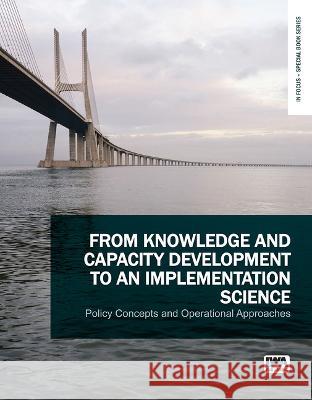From Knowledge and Capacity Development to an Implementation Science: Policy Concepts and Operational Approaches » książka
From Knowledge and Capacity Development to an Implementation Science: Policy Concepts and Operational Approaches
ISBN-13: 9781789063561 / Angielski / Miękka / 2022
Over the next three decades — the typical planning period for large infrastructure — the world will have changed into a place that is predominantly water-scarce, yet also subject to more extreme flooding. The water world’s disjointed project-based approach to knowledge and capacity building needs to be replaced with a programmatic and professionalised structure applying a longer time horizon. Water management systems are becoming more complex and dynamic, and capacity development must take a systems approach. Though forecasting capabilities have increased significantly, the future remains uncertain, so planning should avoid locking in end results and investments, instead seeking an iterative approach facilitating adaptation and stepwise learning of what works. The chapters in this book call for institutionalising processes to learn from past experience, such as frames that monitor and evaluate policies and implementation programmes. Such approaches do necessitate much higher funding and a more coherent and longer operational time frame. Investing in capacity is economically sound, benefiting the individuals whose capacity is developed and society at large. In Focus – a book series that showcases the latest accomplishments in water research. Each book focuses on a specialist area with papers from top experts in the field. It aims to be a vehicle for in-depth understanding and inspire further conversations in the sector.











